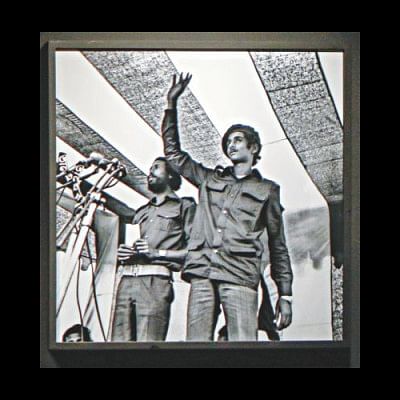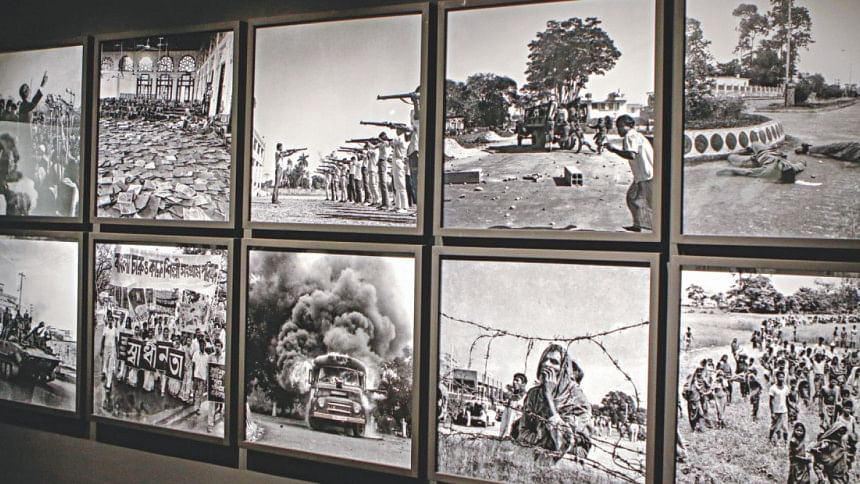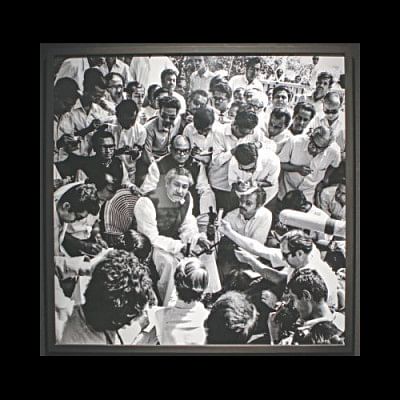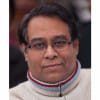Mixing memories with political conscience 'Rashid Talukder (1939-2011): A Life's Work' at Chobi Mela X


A dead face, bruised, emerges out of muddy waters, bricks lie strewn around. Only the face, and no other parts are visible. Gouged eyes stare like black holes. The Pakistani army, with their local collaborators led a killing spree at Rayer Bazar Boddhobhumi on the night of December 14, 1971. The brightest sons of this soil laid down their lives on that dreadful night. Rashid Talukder's photographs are a chilling testimony to that genocide. Many priceless visuals are on display at Drik Gallery marking Chobi Mela X, one of the largest photo fiestas of the world.
Rashid Talukder, a founding father of modern Bangladeshi photography, is also a pioneering visual documentarian of the country's struggles spanning from the Language Movement of 1952, to the Liberation War in 1971. Talukder fought the battle not with his arms, but with his lens. His camera was his weapon of choice. He famously said, “Photography is an international language. If you don't love photography, it will not love you.”
The exhibition is a great treat for photography enthusiasts, especially those eager to learn about Bangladesh history, political struggles, cultural heritage, popular beliefs, and life of simplicity. A number of black and white images tell tales of the birth of Bangladesh and its peoples' supreme sacrifice for the motherland.

The aspects of the visually rich show include a young tokai (people who collect garbage from the streets) leading a procession during the mass upsurge of 1969. The police shot and killed the child soon after the photograph was taken. The exhibition also displays photographs of people burning President Ayub Khan's effigy along with his book Friends Not Masters during the mass uprising of 1969; Bangabandhu Sheikh Mujibur Rahman's press conference at Dhanmondi 32, among many others.

Artist Munem Wasif is the curator of the exhibition. His work revolves around themes of memory, place and identity, primarily through photographs and videos. He has been a co-curator of Chobi Mela since the festival's eighth edition in 2015, and since then, has curated two major research-based shows – one on legendary Bangladeshi photographer Anwar Hossain (Chobi Mela VIII) and another on Nasir Ali Mamun (Chobi Mela IX).
Born in Chabbish Pargana, West Bengal, India, Rashid Talukder's fascination with photography – how photographs could identically translate what one saw onto paper – led to a very early start in his career. He began making tea for photographers in a studio in Rajshahi at the age of six. He joined the Press Information Department as a photo technician at the age of twenty. For the next forty three years, he worked as a professional photographer in two major Bangla newspapers – The Daily Sangbad and The Daily Ittefaq successively. Talukder received a Lifetime Achievement Award at Chobi Mela IV, in Dhaka in 2006, and the Pioneer Photographer Award in National Geographic's 'All Roads Photography Programme' in 2010.
Photo: Sheikh Mehedi Morshed

 For all latest news, follow The Daily Star's Google News channel.
For all latest news, follow The Daily Star's Google News channel. 








Comments